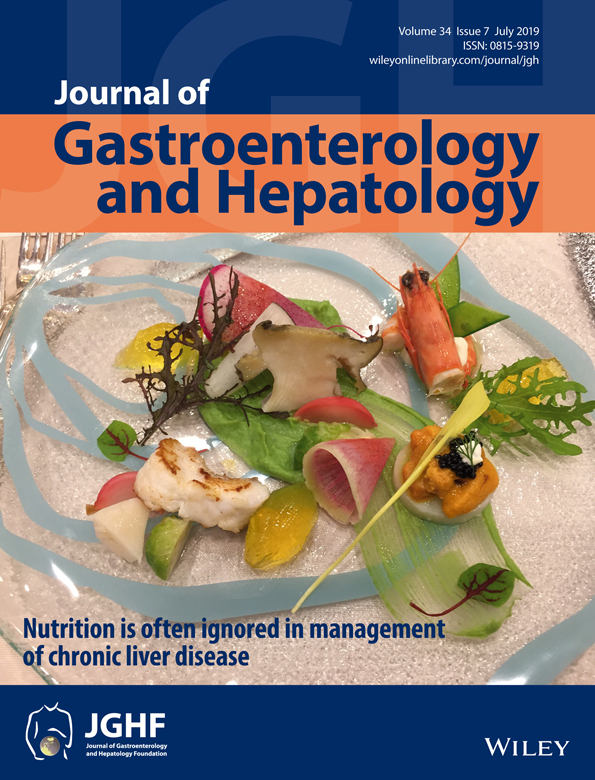Regional variations in the use of biologics and immunomodulators among Korean patients with inflammatory bowel diseases
Abstract
Background and Aim
Variation in medical care can be an obstacle to improving quality and outcome of treatment. We conducted a nationwide, population-based study to identify regional variations in medication prescription rates in Korean patients with inflammatory bowel diseases (IBDs).
Methods
Using the National Health Insurance claims, we collected data on patients diagnosed with IBD (8974 cases of Crohn's disease [CD] and 17 167 cases of ulcerative colitis [UC]) between 2010 and 2016.
Results
Overall rates of biologics (infliximab or adalimumab) use in CD and UC were 19.6% and 6.1%, respectively, and those of immunomodulator (azathioprine or 6-mercaptopurine) use were 66.9% and 20.4%, respectively. The average periods from diagnosis to first biologics use for CD and UC were 1.6 and 1.8 years, respectively, and those of immunomodulators were 0.6 and 1.3 years, respectively. In Seoul, Daegu, and Busan, three major cities in Korea, biologics prescription rates for CD were 20.7%, 22.9%, and 14.6%, respectively, and those for UC were 7.3%, 6.7%, and 4.5%, respectively. In the top 7 regions with the highest number of patients in Seoul, there were 3.6-fold and 3.2-fold variations between regions with the highest and lowest frequency of biologics use in CD and UC, respectively. In addition, there were 1.6-fold and 2.8-fold variations between regions with the highest and lowest frequency of immunomodulator use for CD and UC, respectively.
Conclusions
Regional variation exists in medication prescription rates within a single city as well as nationwide, suggesting that standardization of IBD treatment is necessary in Korea.




